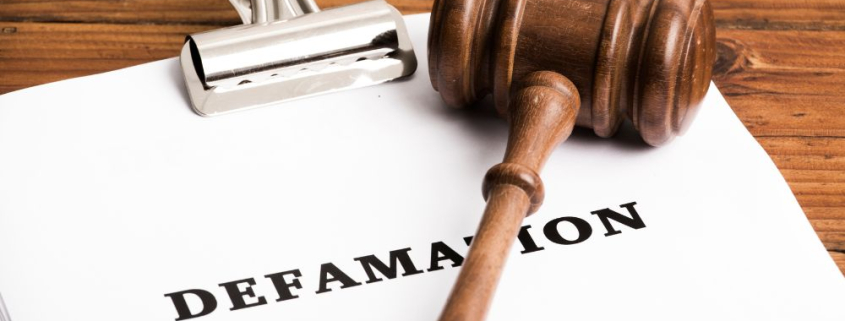How To Tell When Your Business Is Being Defamed

In the business world, customer reviews are critical to selling your business or services to others. Sometimes though, these reviews may be written in a manner that you might consider slanderous or defamatory (mainly if they are not a truthful account of their experience with the business).
Defamation actions can be very costly and challenging to defend. However, where successful, substantial monetary damages can be awarded and in some cases, plaintiffs can obtain a court order called an “injunction” that prevents any further communication of the offending publication or material.
Each of the Australian states and territories enacted uniform defamation laws (Uniform Defamation Laws) that took effect on 1 January 2006. Before the Uniform Defamation Laws reform, there was little consistency in the defamation laws in each state and territory.
Further reforms to the Uniform Defamation Laws (2021 Amendments) took place in July 2021, but those reforms were not taken up by WA and NT, which continue to use the Uniform Defamation Laws unamended.
Several key changes were introduced through these amendments, including (and perhaps most importantly):
- Serious Harm – the allegedly defamatory matter has caused (or is likely to cause) serious harm to the plaintiff. A person who wishes to take legal action for defamation must be able to prove that they have suffered, or could suffer, ‘serious harm’. For a business, it that needs to prove that it has suffered ‘serious financial loss’ as a result.
In all states and territories, companies and other organisations with a “legal personality” (e.g. incorporated associations, trade unions, local councils) cannot sue for defamation.
There are specific exceptions, however, which allow some corporations to sue for defamation if
- it is a non-profit corporation and not a public body (such as a local government or public authority); or
- it employs less than 10 people, is not related to another corporation and is not a public body.
Corporations may attempt to pursue a claim for defamation through an officer or employee identified by the communication, even though they may not be specifically named (as the ‘face’ of the business).
A company can alternatively bring an action for “malicious falsehood” also known as injurious falsehood. Doing this requires four elements of the action to be established, including:
- a false statement about the goods or business;
- publication of that statement to a third person;
- the statement was published maliciously; and
- actual damage as a consequence (which may include a loss of business).
It can be difficult for businesses to prosecute against defamation due to the intricacies of the area. Legal advice should be sought if you are concerned about defaming someone or think you might have your own claim against someone who has defamed you.




